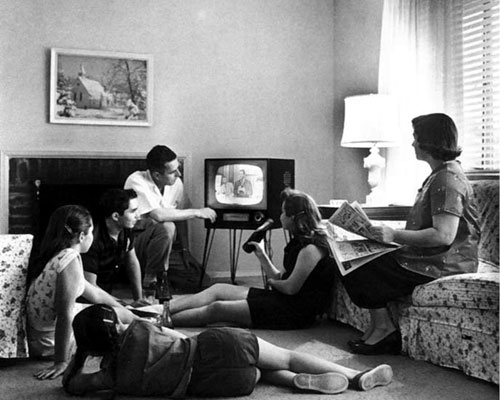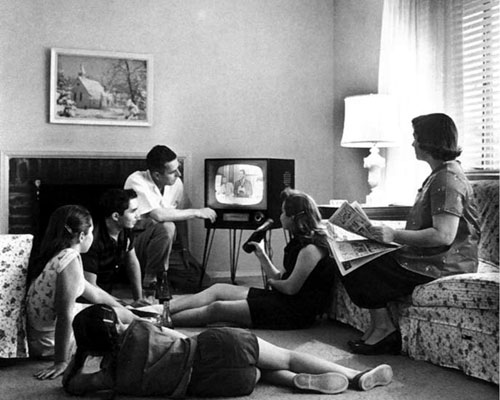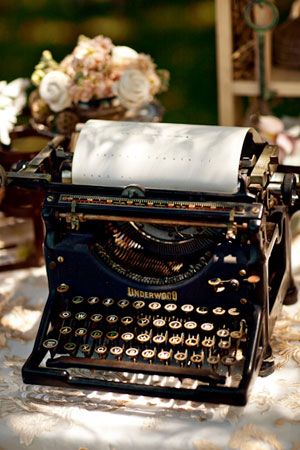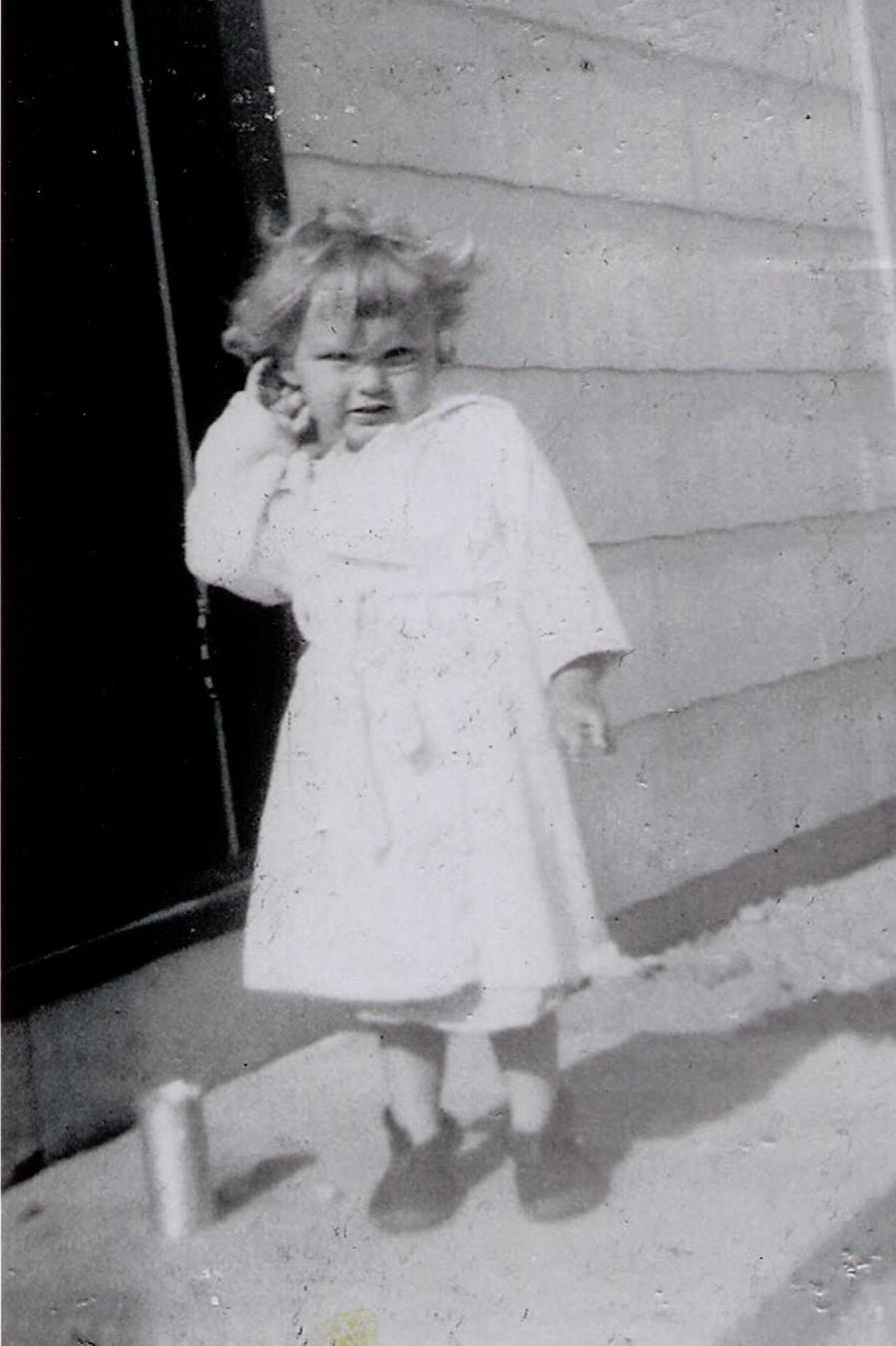Category: My Story
Revelations from a TV Slut

 It happened so quickly. There was no forethought; no plan. Before I knew it, I’d fallen into the depths of television depravity, indiscriminately taking in whatever show happened to appear at the end of my clicker. I became a dissolute, slovenly woman: a TV slut. There I sat for three days, watching hour after hour of numbing information float before my eyes.
It happened so quickly. There was no forethought; no plan. Before I knew it, I’d fallen into the depths of television depravity, indiscriminately taking in whatever show happened to appear at the end of my clicker. I became a dissolute, slovenly woman: a TV slut. There I sat for three days, watching hour after hour of numbing information float before my eyes.
It all started with my eyes, actually. After minor eye surgery and being ordered to “rest,” with no reading or computer work possible, and no exertion, I couldn’t think of anything else to do. (Never mind audio books or Rosetta Stone.) So I sat and stared at the tube across the room.
I now know how to lasso an alligator, should the occasion ever arise. I know today’s top value on every shopping channel. (I can’t wait to get the gold cream that’s going to make my aging skin young again.) I was devastated when Annie let her viper mother Judith talk her out of her favorite wedding gown on Say Yes to the Dress. I have been informed of every alleged affair of any man or woman who has ever lived in the White House. I have been convinced that aliens live amongst us. I fell in love with Adam on Bonanza all over again. And I cried when Long Island Medium Theresa delivered a message to a young woman from her departed fiance to go on with her life.
There were lots of snacks and popcorn involved. I’m sure if I’d had some bon-bons, whatever they are, I’d have eaten those, too.
Of course, there were also hours of TCM old movies, which I adore, and lots of Fixer Uppers on HGTV. I watched repeats of my favorite shows, like Outlander and Vikings.
Not all TV is bad. In fact, some is excellent. I loved some of the new shows I discovered. But the key is in being discerning, which I was not, and using that boob tube wisely. We want to be selective rather than slutty; we want to use the medium as an instrument for improving our lives. We want to do that for ourselves and certainly for our children.
I didn’t exactly grow up watching TV. When I was a kid we played outdoors. I thought it was the law or something, but children certainly were not allowed to sit around inside the house. Nor did we want to. There were so many adventures outside! There was the old depot and train tracks across the street, the abandoned house at the end of the road, bike trails through the woods, and Doc Rea’s veterinary barn half a block away. It was always fun to pop in there to see if he had a horse or goat that needed petting. We could walk the two blocks to town where the creek paralleled main street. Springtime was good for wading and letting tadpoles tickle our ankles.
Ah, that is indeed a long-gone era. When I was seven we got our first television set and, as far as I knew, it belonged to my Dad. We kids weren’t allowed to touch it. There weren’t enough seats in the living room anyway, so mom and dad each had their chair, which we did not deign to sit in, and the rest of us sprawled around on the floor, watching what our parents watched. Bonanza. The Loretta Young Show. Gillette Friday Night Fights. Being selective in our watching came without question, which left us lots of time to do other things. The rules relaxed as we got older, but habitual watching didn’t stick with any of us.
So that’s why I was surprised recently when I so quickly fell into mindless watching. What kind of television watcher are you? Selective? Or slutty? I had to work my way out. You can, too. Oh yes, it’s tempting to just stay there on that couch, glaring. It’s so much easier than… life. But, hey, in the end what do you want your tombstone to say? She knew how to sit and stare at a tube. Maybe you’d like something more meaningful than that. I know I would.
Comments are welcome.
#TelevisionWatching #BoobTube #Outlander #Vikings #Bonanza #TVSlut
Writers and Wrongers

 Long ago I heard that title – a woman was describing herself as a wannabe writer who was really a wronger – and I loved it. After periodically seeing that phrase and mulling it over for many years, I’ve come to the conclusion that most writers are probably wrongers, too. I know I am. That’s what makes good stories.
Long ago I heard that title – a woman was describing herself as a wannabe writer who was really a wronger – and I loved it. After periodically seeing that phrase and mulling it over for many years, I’ve come to the conclusion that most writers are probably wrongers, too. I know I am. That’s what makes good stories.
I’ve done a lot wrong in my life. An early college career that had no meaning to me. Giving up on my own hopes and dreams in order to please others. Occasionally falling into the despair of depression. An unhealthy second marriage that resulted in devastation. Being next to homeless except for the generosity of my sister. Assuming someone somewhere would take care of things and it wouldn’t have to be me.
Wow. That’s all great stuff for writing. Ernest Hemingway said, “There is nothing to writing. All you do is sit down at a typewriter and bleed.” That’s what we as writers do. Rather than hiding our most embarrassing, dumb, and inexplicable life decisions, we open ourselves up and let them spill out all over the place. In the process, we figure out what was going on in our minds and what we can do to learn from it. We do this by putting bits of ourselves into each character we write. And by writing characters who are the people we aspire to be.
The reader, of course, never has to know. For example, a villainess in one of my stories, the bitch no one can stand, took a letter that had come in the mail for her friend and steamed it open to see if it was from a guy she herself had a crush on. When it turned out to be from the friend’s dad, she carefully glued it shut and put it back in her friend’s stack of mail. Now I’m not confessing that I ever did such a wretched thing; I’m just sayin’ I got the idea somewhere.
Writers get ideas everywhere. Every time something goes wrong in my life I catch myself saying, “Oh! That would be a good story.” Good stories, after all, are about overcoming life’s obstacles. They are about prevailing. They are about finding an inner strength you never knew was there. They are about discovery!
Although I couldn’t write about it until years later, some of my erratic behavior after the death of my first husband at age thirty-three is revealed in my novel Homecoming Queen. My thankfully short-lived, wacky second marriage can be found in soon-to-be-published Home Body. A trip my sister and I took when we were in our early twenties, where we camped from Michigan to California and back because we wanted to see the Pacific Ocean, is hilarious in Tough Rocks. Although we’d call home and lie through our teeth, telling our parents that everything was “fine,” in truth we ran into a hail storm that demolished the hood of our car; a flash flood that holed us up in Boulder, Nevada, for three days with nothing to do but watch the free movie of how the Hoover Dam was made; a dust devil that destroyed our tent; and melted tires when we drove through the Mohave Desert at noon on the hottest day in July. It’s that kind of adventure that makes for good writing, if you just let it roll rather than refusing to admit you were ever that stupid.
Writer Sylvia Plath said, “And by the way, everything in life is writable about if you have the outgoing guts to do it, and the imagination to improvise. The worst enemy to creativity is self-doubt.”
So if you’re a writer or want to be a writer, go ahead and have the guts to spill out your life stories. Take your wrongs and let them write.
Examples and comments are welcome.
Image found on ruffledblog.com
The Story of a Storyteller

 Everybody has a story. What’s yours?
Everybody has a story. What’s yours?
I’ve loved telling stories ever since I was a little kid. It was an inherited skill. As Linda Ellerbee once said, “My family believes that telling one story when two will do is a sign that someone isn’t really trying.” With my Irish and Scots-Irish heritage the legacy of seanchi tales seemed to be imbedded in the marrow of our bones. My parents and their twelve siblings rivaled each other in telling tall tales. I heard about my own birth so much I was stunned to eventually learn that my mother had been in labor for only nine hours. I thought she’d broken the world record for prolonged birthing agony.
Truth is many of us baby boomers grew up with stories being bantered about over the dinner table, long before we had outside entertainment drowning out our own voices. A favorite for us kids was Aunt Jane’s rendition of her neighbor Jeb’s “unfortunate” run-in with the police on the night he forgot to put on his pants before running out to the gas station for a tin of snuff. He’d been schnockered, of course. We’d titter and roll our eyes every time we heard it, embarrassed at hearing about a man’s bare ass at the same time it filled us with naïve glee. I loved writing up that one when I was a fledging writer!
So with my childhood love of writing, and my twelfth-grade teacher and college English professor both telling me to never stop writing, it might seem a conundrum that I chose to get degrees in sociology, counseling, and education. Why did I quit writing?
Why did any of us women in the ‘60s and ‘70s choose our careers? We didn’t see a lot of options. Nurse. Teacher. Stewardess if we were really outrageous. New career paths were opening up but for too many of us they had no connection to our everyday lives. I couldn’t figure out how to make a living by writing.
Was there something you loved to do that got lost for you, too? It could be anything that completes your life story: writing, poetry, painting, swimming, business, orienteering, baking, sculpting, joking, singing, performing, architecture, tatting….
If so, here’s the exciting part: Now is our time. Now is the right time to rediscover your hopes and dreams. I’ve rediscovered my desire – indeed need – to write. Now is the time of my life when I can draft words into stories without worrying about what others will think because I don’t give a rat’s ass what they think.
It doesn’t matter how old you are, young or old, wise or wising up, this is the right time for you, too. No more waiting. No more cogitating. Now.
Is there something that you once loved doing that you want to revive?
Go ahead. Find your story and live it out.
Make it worth retelling!
My Writing Process

How did it all begin? When I was 12 years old I wrote in my diary that I wanted to be a “writter” when I grew up. Well, in all honesty, I said I wanted to be an actress, but they seemed to live unhappy lives, so I’d be a writter instead. Clearly, I had a lot to learn. Spelling aside, I didn’t yet know about Petronius, Virginia Woolf, or Ernest Hemingway, and so many other writers whose lives ended in suicide. Thank goodness for my ignorance! Had I known, I might never have continued to foster my dream of being a writer. And so I am the non-self-destructive kind of writer. I haven’t given up my day job, even when coming within reach of a movie deal on one of my books. (Which never panned out, so thank goodness for that job!) I just keep on writing. That’s what real writers do. We write no matter what.
W hat is my writing process? Organized chaos. I like being organized, but apparently my life likes to stay in chaos. So, consequently, I must plan for the two to intertwine. For example, right now I’m working on two books, one fiction (The House on Haven Island) and one non-fiction (What We Talk About When We’re Over 60). I love them both, but often when I set aside a morning to concentrate on the novel, invariably someone from the joint project non-fiction book needs something done now. It can never wait. And truth be told, if we do wait it gets lost in the shuffle, so it’s always easier to tend to it at that moment. Then I have to try to recapture my life on the island. It’s quite schizophrenic. I know, I know. You’re thinking that I cause the chaos by working on two books at once. True. I seem to do better when under pressure. Otherwise it’s too easy to turn into a sloth. It’s even worse during the school year when I’m teaching (I’m a college professor) and that must always come first. Juggling 90 new students each semester and trying to conjure up a bunch of rowdy new fictional characters is a challenge. But sometimes it feels like the same thing, just in different settings.
hat is my writing process? Organized chaos. I like being organized, but apparently my life likes to stay in chaos. So, consequently, I must plan for the two to intertwine. For example, right now I’m working on two books, one fiction (The House on Haven Island) and one non-fiction (What We Talk About When We’re Over 60). I love them both, but often when I set aside a morning to concentrate on the novel, invariably someone from the joint project non-fiction book needs something done now. It can never wait. And truth be told, if we do wait it gets lost in the shuffle, so it’s always easier to tend to it at that moment. Then I have to try to recapture my life on the island. It’s quite schizophrenic. I know, I know. You’re thinking that I cause the chaos by working on two books at once. True. I seem to do better when under pressure. Otherwise it’s too easy to turn into a sloth. It’s even worse during the school year when I’m teaching (I’m a college professor) and that must always come first. Juggling 90 new students each semester and trying to conjure up a bunch of rowdy new fictional characters is a challenge. But sometimes it feels like the same thing, just in different settings.
What am I working on & why do I write what I do? Let me tell you a little bit about how my two latest projects came about, as an example of how writing ideas can crop up everywhere. I believe that good writers see writing opportunities in everything. A book I co-wrote last year, one that started at my kitchen table over ice tea with a group of girl friends, led to the non-fiction book I’m co-writing now. The first one was called Atlanta’s Real Women, which got started when my friends and I were laughing over the TV reality show The Real Housewives of Atlanta. Somebody said, “We outta write about real women!” So we did. Thirteen women eventually contributed. Later, thinking that had been a cool idea, I called my old college roommate (from 1966!), Sherri Daley, and asked if she’d like to co-write one about New York City, where she lived for 25 years. She said no, she wanted to write about women over 60. So we are. It’s called What We Talk About When We’re Over 60. Thirty women contributed to this one. Coordination has been at times tumultuous, at times labor intensive, and always a joy. My latest novel that I’m working on, The House on Haven Island, came about like all of my novels do: It’s been stuck in my head for a long time. I’ve given up trying to figure out why I wake up in the night with new story ideas; I just go with it. They are bursting in there! It doesn’t feel like a great feat when I get one done. It feels like a relief to get it out of my head. All of those people living in there gets awfully cramped. If you want to be spooked out, find my most recently published novel, Becoming Jessie Belle, and read about how the characters in that one came to me in past life regressions with a psychic.
How does my work differ from others in the genre? I think that if you pay attention to your own insights and inspirations, your work will always be unique. Only you can see the detailed images that are in your head; only you know the gut feelings of your characters; and only you can write them down in your own way. That’s what I try to do.
How does my writing process work? I work at it. Planning writing time into my schedule is key. If I wait to be in the mood or until inspiration strikes, it never happens. Life always gets in the way. Years ago I once heard writer Jacquie D’Alessandro give a presentation, where she gave each audience member a kitchen timer so we wouldn’t have an excuse not to write. Even fifteen minutes a day, she told us, is better than nothing. I still use that timer! I start with an idea of the protagonist, and once in a while the ending, too. When that happens, I have to figure out how to get to that end. But sometimes the story takes unforeseen turns as I write and the ending is a surprise to me. “Really, that’s who killed the queen!?” That’s always fun. As I go, I make out a storyboard. I can’t work without that kind of organization, otherwise my many interruptions get me lost. I use a big bulletin board to post 5X7 cards, one for each sequence of the story. When I pin them up and mull them over, it helps me see what needs to change places and where there are gaps that need to be filled. I also make out a card for each character and each venue. For example, I list a character’s physical characteristics as well as behaviorisms and speech patterns. Otherwise the main man might end up being six foot four in chapter 1 and have shrunk to five foot ten in chapter 19. This process is fun to me. It’s like putting together a giant puzzle where I get to make up the pieces.
Whatever your writing process might be, I hope you enjoy it as much as I do. Let me know if you have any questions about writing. And thank you to my writer friend Rona Simmons for tagging me for this writers’ blog tour. Here’s to writers everywhere!
Next on the tour? Sherri Daley. Sherri Daley has established herself among editors as someone who will write about anything – from new forms of cancer treatments to the lives of Broadway stage hands, tuning up your own oil burner, that new car smell, blueberry jam, and Joshua Bell’s violin.
Kathryn Gray-White.
Later, she dug her heels in at UGA. Her journalistic degree (ABJ) produced magazine articles on Georgia history, like “UGA’s Lab Road Murder” (in Moonshine, Murder, & Mayhem, 2003). From the journalistic approach she moved to academic writing. These compositions now include the recreation of 1702 Carolina in the “The Anglican City of God”(PhD, 2010). Of late, however, she finds herself spending more and more time reflecting on her small town childhood. Her latest piece reflects her love of books and her spiritual journey. This first appeared inAtlanta’s Real Women (August, 2013) and soon in What We Talk About … When We’re Over 60(June, 2014). Currently, she is contemplating writing a historical-based novel set in a small town during post World War II. It is presently emerging from under her stack of papers dubbed “COLD WARS.” www.greywhytekat.net